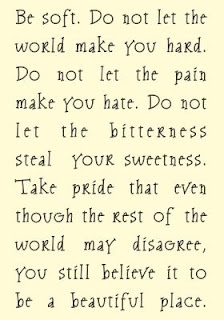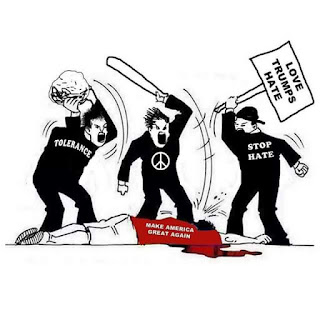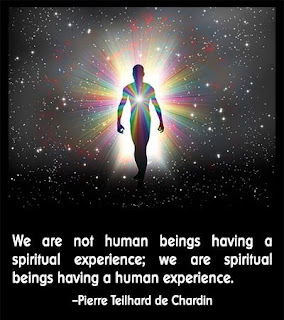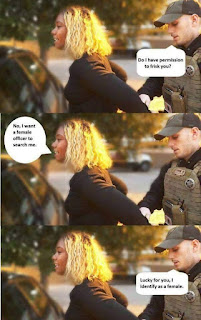They're escaping nations ruled by Islam & Marxism.— Global Awareness 101 (@Mononoke__Hime) June 4, 2018
"The Sicilian town of Pozzallo, where Salvini delivered his speech, is one of the main points of entry for refugees trying to escape war, persecution and famine across North Africa and the Middle East."https://t.co/kf1zavoyl6
Deutsche Welle (DW)
written by Staff
Sunday June 3, 2018
Matteo Salvini has warned "the good times for illegals are over." EU ministers will soon be debating the controversial Dublin Regulation at a high-level bloc meeting.
Italy's new Interior Minister Matteo Salvini on Sunday told a crowd of supporters in Pozzallo that his government would use "common sense” to stop Italy and Sicily becoming "Europe's refugee camp."
Due to the Dublin Regulation, Italy has taken the brunt of asylum seeker applications and is required to take on the responsibility of accepting or rejecting them.
What Salvini said:
- "Italy and Sicily cannot be Europe's refugee camp" ... "The good times for illegals are over — get ready to pack your bags."
- "Nobody will take away my certainty that illegal immigration is a business ... and seeing people make money on children who go on to die makes me furious"
- "It's too costly to keep them in Italy, in hotels … I think it's better to spend money in the countries of origin, and now if there are NGOs that want to work for free, that's fine."
- His government would "not take a hard line on immigration, but one of common sense."
- After being sworn in he will ask his ministry's experts "how to reduce the number of arriving migrants and increase the number of expulsions."
— The Local Europe (@TheLocalEurope) June 9, 2018Italy, Malta in diplomatic spat over migrant arrivals https://t.co/DWjS5V3zPg pic.twitter.com/DNmB3igyv6
The Local, Italy
written by AFP staff
Saturday June 9, 2018
Italy's new hardline interior minister Matteo Salvini engaged in a war of words with the Maltese government on Friday after accusing the Mediterranean island of not doing its fair share to take in migrants.
"The good God put Malta closer to Africa than Sicily," said the nationalist Salvini, as a new wave of migrants rescued in the Mediterranean prepared to land in Italy.
"It is not possible for Malta to say 'no' to any request for help," he continued.
Salvini's comments came after Malta reportedly refused to come to the aid of a migrant rescue ship Seefuchs, which was stranded with 119 migrants onboard in the Mediterranean due to violent sea conditions.
The ship had embarked on a mission coordinated by the Italian coastguard on Wednesday to rescue migrants aboard a dinghy in distress.
But after evacuating the dinghy, the Seefuchs was forced to call for assistance from a bigger vessel, unable to navigate in the deteriorating weather conditions without putting the migrants' lives in danger.
According to the German NGO Sea-Watch, which attempted in vain to assist the Seefuchs due to the adverse conditions, Valletta refused to offer assistance, apart from agreeing to accept medical evacuations by air.
The Maltese government was quick to deny it had done anything wrong.
"With regards to Search and Rescue, Malta acts in accordance to the international conventions that apply," the government said in a statement on Friday evening.
"Malta will continue to respect these conventions with respect to the Safety of Life at Sea (maritime treaty), as happened in this latest case and indeed in each case."
70 hours in rough seas
The Seefuchs was finally reached on Friday afternoon by a tanker and an Italian coast guard ship and is expected to dock at the port of Pozzallo in southern Sicily in the evening.
The migrants on board were reportedly in a state of distress after spending 70 hours in rough seas.
Another 232 migrants, on board the NGO ship Sea Watch 3 are also set to disembark in the southern Italian state of Calabria Saturday morning after more than three days at sea.
Unconvinced by Valletta's statement, the bullish Salvini, issued a sharp response on Friday evening.
"Can our Maltese friends tell us how many ships carrying immigrants docked in their ports in 2018?" he said in a statement.
"How many people landed, how many asylum applications were examined and how many accepted? Italy wants to solve problems, not create them."
Salvini -- who is also deputy prime minister -- has repeatedly promised to stop migrants arriving in Italy and speed up deportations.
He accuses fellow EU nations of abandoning Italy in the struggle to deal with migrant arrivals, recently announcing that Italy cannot be "Europe's refugee camp."
The southern European nation has seen more than 700,000 migrants arrive on their shores since 2013.
However, a controversial agreement between Italy's former centre-left government and authorities and militias in Libya has triggered a decline in overall arrivals of some 75 percent since the summer of 2017.
But so far this year Italian authorities have still registered more than 13,500 arrivals.
PBS Newshour published on Dec 9, 2017: Italy has received 500,000 migrants and refugees from North Africa who have fled war, extreme poverty and oppression during the last three years. But the country, which had a reputation of welcoming migrants, has received backlash for it and is starting to discourage the migrant flow. NewsHour Weekend Special Correspondent Nadja Drost reports.
World Documentaries published on Nov 14, 2017: Ross travels to North Africa as he investigates the arduous journeys taken by those desperate to leave Libya for Europe. Men and women are forced into slavery by Islamist.
The West Australian News
written by Paul Murray
Friday June 8, 2018
Remember when Australians used to poke fun at the Italian political system?
Always sacking prime ministers. Lots of small parties that caused massive instability in government.
Voters who talked incessantly about politics but were disengaged and cynical about those who governed. The rise of populist politicians like billionaire Silvio Berlusconi.
And then we started to look a lot like them.
After inconclusive elections in March, Italy this week swore in a new government — a coalition of two centre-right parties, Lega and the Five Star Movement — which have a joint policy on immigration and asylum seekers that would resonate strongly in Australia.
Back on New Year’s Eve in 2002, I stood in the Quirinale in Rome after midnight listening to an address by the late president, Carlo Ciampi, speaking about the country’s adoption of the euro.
Ciampi emphatically said that Italy had entered the euro zone and it would thereafter always be part of one homogeneous Europe.
Less than two decades down the track, world events have changed the face of Italy with the new government full of Eurosceptics wary of Brussels’ rules, which have thrown open its borders, and listening far more closely to popular sentiment.
Italy has borne the brunt of the tide of refugees heading north from Africa and the Middle East, escaping wars or just seeking better economic prospects, and the election of the new government marks a substantial hardening of public attitudes.
Many Italians have had enough. If the left wing of the Australian Labor Party seriously wants to continue with the current push to weaken our border controls, it needs to be aware the public backlash could look something like what is happening in Italy.
Two days after the swearing-in, Lega’s leader, new Interior Minister Matteo Salvini, visited a Sicilian refugee camp to reinforce his party’s pledge to send home more than 500,000 undocumented arrivals from North Africa within five years.
“The only antidote to racism is to control, regulate and limit immigration,” Salvini said during the national election campaign. “There are millions of Italians in economic difficulty.
“Italians are not racist, but out-of-control immigration brings with it far from positive reactions. We want to prevent that.”
This week in Sicily, he hardened the rhetoric:
“The good times for illegals is over — get ready to pack your bags. Open doors in Italy for good people and a one-way ticket for those who come to Italy to create commotion and think they will be taken care of. ‘Send them home’ will be one of our top priorities.”
More than 13,500 people claiming migrant and refugee status have arrived in Italy by sea this year, boosting the 600,000 who landed since the start of 2014.
Days before Salvini’s visit to the Pozzallo camp, 35 people drowned off the coast of Tunisia and another 67 were rescued trying to reach Italy.
And in a direct parallel to the renewed refugee debate in Australia, this was the new minister’s message:
“Every life is sacred. To save lives you have to stop the departures of these death boats, which is a lucrative business for some and a disgrace for the rest of the world.”
Sound familiar? Salvini is embarking on the same voyage that the Abbott government began after its election in 2015.
But he is already being told that Italy cannot send back to their home countries people who don’t want to go and it has no right to turn boats around at sea. Sound familiar?
Salvini bolsters his position by promising Italians to cut the $5.8 billion they spend each year on “maintaining immigrants”. And while his Lega party’s position on refugees has always been harder than the Five Star Movement’s, it is now enshrined in the 57-page government contract agreed with Prime Minister Giuseppe Conte.
“The immigration section of the policy document calls for the deportation of Italy’s estimated 500,000 undocumented immigrants ‘as a priority’, building more detention centres and a review of the European Union’s Dublin Regulation, which stipulates that migrants and refugees apply for asylum in the first EU country they reach,” Al-Jazeera reported.
So what does this shift in Italian politics mean for Australia — if anything?
The Victorian Labor Party was in some ways saved from itself over refugee policy at the end of last month in an attempt to save Bill Shorten from political embarrassment.
“In a sign of how sensitive this issue is, the Victorian Labor State conference today shut down a potentially damaging debate over the party’s policy on offshore processing,” the ABC reported on May 29.
“The motion, drafted by Labor’s left, urged the party to ‘close the offshore detention centres, transit centres and other camps on Manus and Nauru within the first 90 days’ of a Shorten government.
“But shortly before debate was due to begin, two powerful unions, the AWU and CFMEU, teamed up to defer that motion — and all others — prompting cries of ‘shame’ from the audience.”
The Guardian concluded major changes at the national conference — now due in December after the clash with the Super Saturday by-elections — were unlikely to protect Labor’s electoral chances.
But this week it became known that the Left is coming again at the NSW Labor conference due later this month, with the by-elections just four weeks later.
A document prepared by the internal Labor for refugee groups and a clutch of associated proposed motions, urge overturning some bipartisan elements of Australia’s strategies, many of them instituted by the party when in government, particularly by Kevin Rudd.
“These motions show the party’s rank and file are uncomfortable with the suite of tough policies that provide for offshore detention and processing of refugees, and boat turn-backs that are designed to deny landfall to refugees seeking asylum as a deterrent to taking the hazardous journey in the first place,” The Australian’s Troy Bramston reported.
As weary Italians try to slam the door shut on the refugee tide, Labor in Australia seems hell-bent on throwing ours open again.





































No comments:
Post a Comment